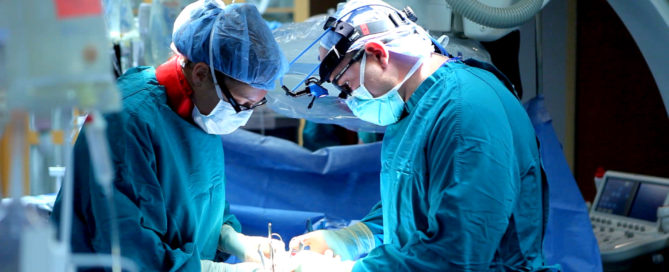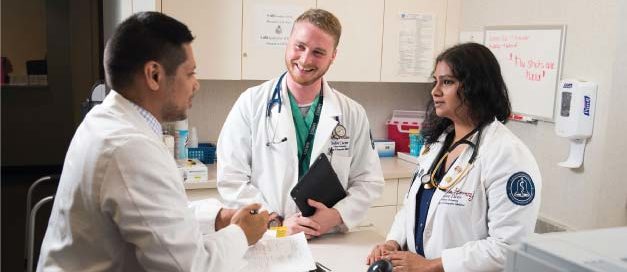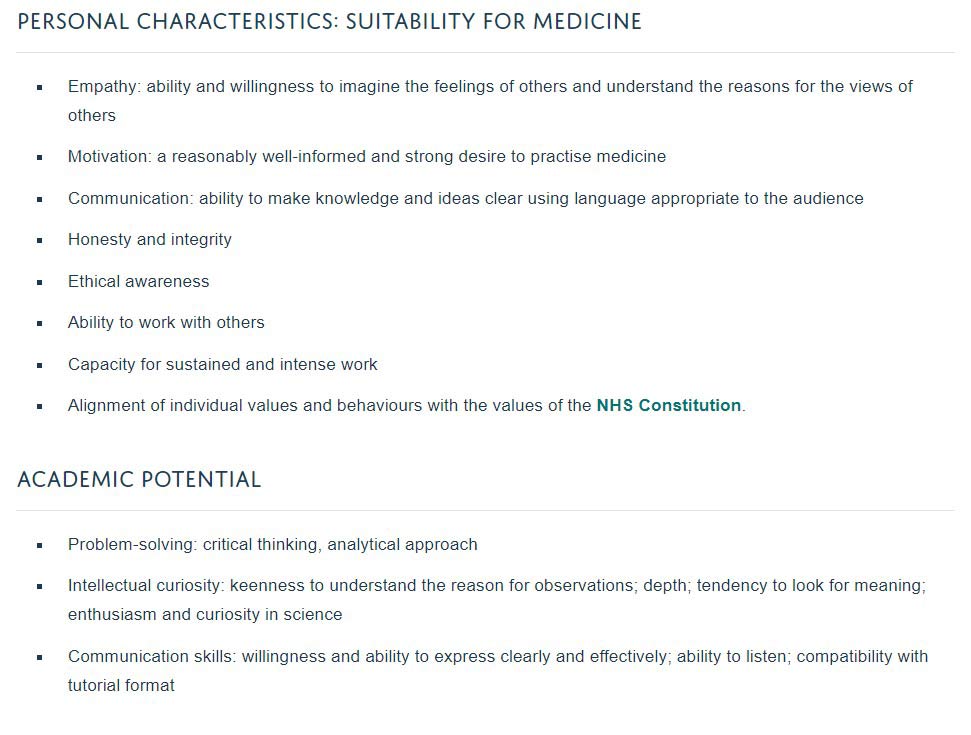Medicine is a vocational course that demands resilient professionalism under a core set of values that is imperative in our care of the most fragile in our society. If you can’t demonstrate that you understand what it means to be a good doctor, your academic achievements won’t be enough to get you into Medical School and excel in your future careers.
So what are the skills and qualities of a good doctor?
The Skills and Qualities of a Doctor
One of the best ways to define the skills and qualities that makes a good doctor is from hearing what the experts in the field say. These are the people that have seen the good and bad qualities of doctors, and the impact these qualities have on patients and healthcare as a whole.
Sir Peter Rubin (Chair of the General Medical Council from 2009-2014) stated that “Doctors have the enormous privilege of touching and changing lives. Through all the changes driven by research and public expectations, some of the art and science of medicine has endured down the ages and defines medicine as a profession, whatever a doctor’s area of practice.”
He goes on to list some core skills and qualities of doctors, starting with being able to synthesise conflicting and incomplete information to reach a diagnosis. The next is dealing with uncertainty:
Deal With Uncertainty
“Protocols are great, but doctors often must work off-protocol in the best interests of the patient, for example, when the best treatment for one condition may make a co-existing condition worse.”
Manage Risk
“Many patients are alive today because doctors took risks and as doctors, we bring all our professional experience to bear on knowing when acceptable, informed and carefully considered risk ends and recklessness begins – and we share that information openly and honestly with our patients, always respecting that the final decision is theirs.”
Recognise That Change Both In Medicine And Society Is Constant
“Ensuring that those standards, which are immutable, are preserved while those that are simply a product of their time are consigned to history carry and accept ultimate responsibility for our actions.”
Need help demonstrating key qualities of doctors to Admissions Tutors?
Signing up to the Interview Bundle means you’ll be guided by a Medicine interview expert who will help you demonstrate that you meet the key selection criteria Admissions Tutors look for.
Want to learn how to Interview like a pro, then this bundle is the one for you…



Learn the perfect Interview technique with 6med.
Signing up to the Interview Bundle means you’ll be guided by Medicine Interview experts who will help you demonstrate that you meet the key selection criteria Admissions Tutors look for.
MMI Crash Course
MMI Crash Course
Sir Peter Rubin finishes by saying “Those of us who practise and teach medicine now are merely the custodians of those core values which were passed on to us by earlier generations and which we, in turn, will pass on to those who come after us. It is these values and these qualities which define a good doctor: they are timeless and long may they remain so.”

Focussing on the qualities and skills more specifically, here are further attributes that are described as the fundamentals of being a good doctor.
Good Communication Skills
As Dr. John Madden of St. George’s University mentions, “Being a good listener is critical to being a good doctor.” Effective communication with patients is key to understanding patients’ issues and concerns but also to explain a diagnosis to them. When explaining a diagnosis, good communication skills are highlighted by taking into account a patient’s medical knowledge so they understand exactly what the situation is, however difficult it may be for them, such as when a diagnosis is terminal.
Regarding communication skills, the GMC say that Doctors must be able to:
- Treat patients as individuals and respect their dignity.
- Work in partnership with patients.
- Work with colleagues in the ways that best serve patients' interests.
Having good communication skills opens many doors. You will be an excellent person to include in any team and a hit once you start talking to patients. Communication skills are not solely for medical school interviews and the medical school itself; they are vital throughout a doctor’s entire career. They will really define you as a doctor.
We break down communication skills in much more detail in our guide here and explain how you can improve and demonstrate these skills during interviews.
Professionalism
Doctors must maintain professionalism at all times. As a doctor, you have a duty to treat all patients with respect and display appropriate emotional maturity across interactions. Doing this will also help patients feel more comfortable and trust you with their health. It’s important to note that it doesn’t just end with patients, it is also your responsibility to ensure that your colleagues provide nothing but the best patient support they can.
There are, of course, many more qualities that we have not explored in detail such as emotional intelligence, leadership skills, attention to detail, teamwork skills, strong work ethic and curiosity. If you are still craving further details, check out the GMC website.
How Can I Be A Good Doctor?
Throughout your time in medical school and during the first few years after you graduate, you will pick up an unfathomable amount of skills that will help you to become a good doctor. The good news is that you don’t have to wait until you start further education to begin developing these skills. In fact, you likely already have some of them, which makes it crucial to discuss these in your personal statement and interviews.
Do I already have some of the skills and qualities?
The Medical Schools Council (MSC) has a list of qualities that you should be able to demonstrate to medical schools.
- Motivation to study Medicine and genuine interest in the medical profession
- Insight into your own strengths and weaknesses
- Personal organisation
- Academic ability
- Problem solving
- Risk management and an ability to deal effectively with problems
- Honesty
- Ability to take responsibility for your own actions
- Effective communication, including reading, writing, listening and speaking
- Teamwork
- Resilience and the ability to deal with difficult situations
- Empathy and the ability to care for others.
How many of these qualities can you tick off, and more importantly, do you have evidence of times you demonstrated them?

This is what Oxford University say are the personal characteristics they look for in applicants applying to their Medicine Degree.

Similar to the MSC list, do you have the skills listed by Oxford? If by some bizarre coincidence, everyone reading this is applying to Oxford, then you can just use what Oxford say above. However, if you’re not applying to Oxford, most med schools tend to explain the key qualities they look for/expect of their students. Make sure you check the websites of the med schools you are applying to.
We have plenty of free guides available at 6med to help you understand these qualities better, including resilience, empathy and ethics. If you are looking to demonstrate these qualities effectively, our Complete Medicine Bundle helps you to explain the qualities in your Personal Statement and during your Interviews.
How can you demonstrate skills and qualities?
Your aim at interview is to try to get the Admissions Tutors to tick off the qualities we mentioned earlier. This means you should focus on personal experiences that demonstrate the qualities of a good doctor.
We cover this more in our guide on how to demonstrate the key qualities of a doctor, but here are a few ideas:
1. Effective Communication
- I took part in regular debating workshops and competitions at school – I had to articulate complicated points and present arguments to an audience.
- Also, I had to be respectful towards other people and their opinions.
2. Good Teamwork
- I led a team for the school’s enterprise challenge: we had to design a business plan and pitch for a phone application. Good teamwork was the reason we won.
- During my work experience in hospitals, I shadowed a doctor who was in an MDT that was treating a patient with muscle dystrophy. I worked closely with various people, such as physiotherapists, nurses, other doctors, etc.
3. The Realities Of Being A Doctor
- I shadowed a junior doctor for a day – I contributed by helping with routine paperwork, filing, phoning up GP surgeries, inserting data into a computer, etc.
- He stressed how fulfilling it is to see a patient get better and that medicine surprises you all the time.
4. Leadership and Handling Pressure
- I led the charity week committee at school which raised £16,000.
- I had to delegate tasks to team members, as well as motivate the group when times were bad and I realised how important it was to listen to individuals.
- I witnessed a surgeon make the decision to call off surgery because the risk of intervention was just too high. He made the final decision alone but he considered people’s opinions.
If you feel weaker in some areas, for example, you don’t think you’re decisive enough – that’s completely fine, but make sure you know how you’re going to work on these weak areas and show the medical school you’re trying to improve.

Stand out from the competition with expert Interview Support.
Boost your performance in every type of interview with our expert resources and live intensive courses, covering everything you need to know.
Interview Online Course
Interview Online Course
Need some extra guidance in your Interview preparations?
Signing up to the Interview Bundle means you’ll be guided by a Medicine interview expert who will help you face the toughest Interview questions and come out on top.
Want to learn how to Interview like a pro, then this bundle is the one for you…


What Makes A Good Doctor Interview Question
You may be asked the exact question “what makes a good doctor?”, but it is more common that you’ll be asked a question related to this and your motivation for becoming a doctor. Here are some examples of the questions with some answers:
Why did you choose Medicine?
The classic medicine interview question – you definitely want to specifically prepare this one and use it as a framework for other ones.
There are many ways to answer this. In this example, we state a reason, explain it then support it with evidence. You can alternatively, for instance, base your whole answer around an experience, or multiple experiences.
Start with a direct answer to the question listing main points.
I like medicine because it connects science and art.
Explain your two points.
Medicine is a science – as a doctor, you use medicine to manipulate the body to respond effectively to disease. This requires knowledge and understanding of the way our body has evolved to work. Application of this knowledge (based on understanding) is necessary to make informed clinical decisions.
Art – there aren’t always clear rules dictating how best to treat a patient. A doctor needs to weigh pros/cons of treatments, treat patients with empathy, approach ethical dilemmas.
Medicine allows me to directly help people and make a positive difference while being challenged/mentally stimulated.
Medicine is a unique career that cannot be pursued based on anecdotal evidence or through reading the description of the job alone. Hence why I arranged work experience to find out more about the career.
Giving supporting evidence of being proactive. Evidence and experience are what makes your question more personal.
Be sure to use the STARR technique when citing experience.
The job doesn’t only involve treating patients. It involves constant learning, teaching colleagues, supporting colleagues. [expand…]
This shows a good understanding of the career and the qualities of a good doctor.
What aspects of being a doctor DON'T appeal to you?
The key is to maintain a balanced view. You should be aware of the flaws while not making the profession seem all doom and gloom – justifying why it’s a fit for you. Maintain positivity without belittling these problems. Here are some drawbacks to being a doctor along with counter-arguments, they further show your understanding of the qualities of a good doctor:
The job can be very stressful as being a doctor is such a great responsibility – stress can affect personal life, the time-commitment can also affect personal life
Counter: It’s important to find a good work-life balance. A good coping mechanism could be not compromising hobbies / extra-curricular.
You could mention how you are dealing with this currently – what extracurricular activities do you do?
Being too attached to patients – the burden of their life can be difficult to bear. Dealing with death can be hard.
Counter: It’s important to talk to people and not bottle up feelings. Thankfully, there is plenty of support available for doctors.
Refer to the specific support available to doctors. You could mention an example of an occasion where you spoke out or helped someone else with problems they had.
You could potentially get a question on your weaknesses – we recommend you try to avoid giving an answer that’s considered a key quality in a doctor.
It is clear, from these questions, that having a solid understanding of the qualities of a good doctor is crucial for formulating the answers that tick the Admissions Tutors’ boxes. Aside from meeting the preferred characteristics that medical schools are looking for, developing the key qualities early will set you up for the careers ahead of you. Take your time now, before the application deadline and interview season, to work through the key qualities, see how you meet them and prepare examples of times you demonstrated them.

Learn the perfect Interview technique with 6med.
Signing up to the Interview Bundle means you’ll be guided by Medicine Interview experts who will help you demonstrate that you meet the key selection criteria Admissions Tutors look for.
MMI Crash Course
MMI Crash Course
Need help demonstrating key qualities of doctors to Admissions Tutors?
Signing up to the Interview Bundle means you’ll be guided by a Medicine interview expert who will help you demonstrate that you meet the key selection criteria Admissions Tutors look for.
Want to learn how to Interview like a pro, then this bundle is the one for you…

